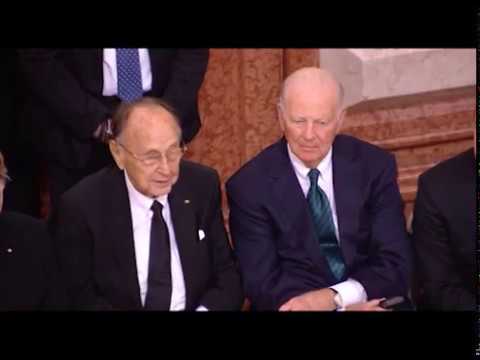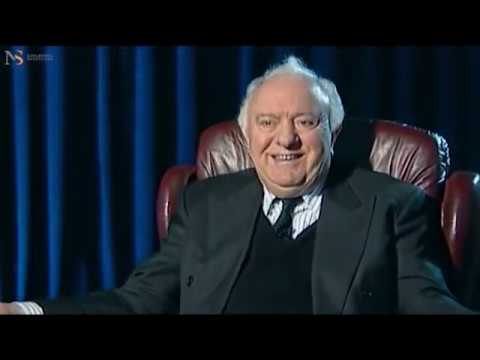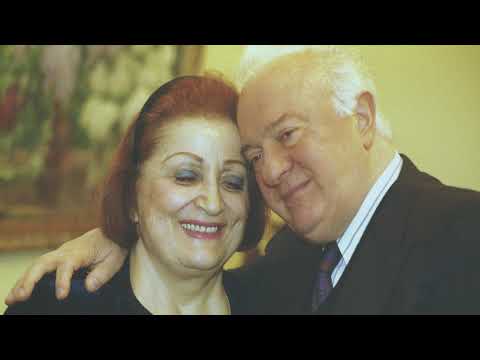Eduard Shevardnadze | Wikipedia audio article
This is an audio version of the Wikipedia Article: Eduard Shevardnadze 00:02:59 1 Early life and career 00:06:14 2 First Secretary of the GCP (1972–85) 00:06:41 2.1 Anti-corruption campaigns 00:08:20 2.2 Economic policy 00:10:13 2.3 Political experimentation and nationalism 00:12:59 2.4 National politics and resignation 00:15:10 3 Minister of Foreign Affairs of the Soviet Union (1985–91) 00:16:38 4 President of Georgia (1995–2003) 00:16:50 4.1 Rise to power 00:17:44 4.2 Rule 00:19:51 4.3 Downfall 00:20:56 5 Death and funeral 00:23:34 6 Awards Listening is a more natural way of learning, when compared to reading. Written language only began at around 3200 BC, but spoken language has existed long ago. Learning by listening is a great way to: - increases imagination and understanding - improves your listening skills - improves your own spoken accent - learn while on the move - reduce eye strain Now learn the vast amount of general knowledge available on Wikipedia through audio (audio article). You could even learn subconsciously by playing the audio while you are sleeping! If you are planning to listen a lot, you could try using a bone conduction headphone, or a standard speaker instead of an earphone. You can find other Wikipedia audio articles too at: / @wikipediatts983 You can upload your own Wikipedia articles through: https://github.com/nodef/wikipedia-tts "The only true wisdom is in knowing you know nothing." - Socrates SUMMARY ======= Eduard Ambrosiyevich Shevardnadze (Georgian: ედუარდ ამბროსის ძე შევარდნაძე, Eduard Ambrosis dze Ševardnadze; 25 January 1928 – 7 July 2014) was a Georgian politician and diplomat. He served as First Secretary of the Georgian Communist Party (GPC), the de facto leader of Soviet Georgia from 1972 to 1985 and as Minister of Foreign Affairs of the Soviet Union from 1985 to 1991. Shevardnadze was responsible for many key decisions in Soviet foreign policy during the Gorbachev Era including reunification of Germany. Following the dissolution of the Soviet Union, he was President of Georgia (or in equivalent posts) from 1992 to 2003. He was forced to retire in 2003 as a consequence of the bloodless Rose Revolution. Shevardnadze started his political career in the late 1940s as a leading member of his local Komsomol organisation. He was later appointed its Second Secretary, then its First Secretary. His rise in the Georgian Soviet hierarchy continued until 1961 when he was demoted after he insulted a senior official. After spending two years in obscurity, Shevardnadze returned as a First Secretary of a Tbilisi city district, and was able to charge the Tbilisi First Secretary at the time with corruption. His anti-corruption work quickly garnered the interest of the Soviet government and Shevardnadze was appointed as First Deputy of the Ministry of Internal Affairs of the Georgian SSR. He would later become the head of the internal affairs ministry and was able to charge First Secretary (leader of Soviet Georgia) Vasil Mzhavanadze with corruption. As First Secretary, Shevardnadze started several economic reforms, which would spur economic growth in the republic—an uncommon occurrence in the Soviet Union because the country was experiencing a nationwide economic stagnation. Shevardnadze's anti-corruption campaign continued until he resigned from his office as First Secretary. Mikhail Gorbachev appointed Shevardnadze to the post of Minister of Foreign Affairs. From then on, with the exception of a brief period between 1990 and 1991, only Gorbachev would outrank Shevardnadze in importance in Soviet foreign policy. In the aftermath of the Soviet Union's collapse in 1991, Shevardnadze returned to the newly independent Georgia. He became the country's head of state following the removal of the country's first president, Zviad Gamsakhurdia. Shevardnadze was formally elected president in 1995. His presidency was marked by rampant corruption and accusations of nepotism. After allegations of electoral fraud during the 2003 legislative election that led to a series of public protests and demonstrations colloquially known as the Rose Revolution, Shevardnadze was forced to resign. He later lived in relative obscurity and published his memoirs.
wikipedia tts-ის სხვა ვიდეოები
 05:14
05:14
Principality of Svaneti | Wikipedia audio article
 00:59
00:59
Bolnisi cross | Wikipedia audio article
 01:08
01:08
Georgian Stock Exchange | Wikipedia audio article
 02:29
02:29
Lazica | Wikipedia audio article
 04:34
04:34
Akhalkalaki | Wikipedia audio article
 00:51
00:51
Samachablo | Wikipedia audio article
 01:34
01:34
Dzala ertobashia | Wikipedia audio article

მსგავსი ვიდეოები

Hino da Geórgia | Legendado e ilustrado #70
BRUNO SEGUN.

9 თებერვლის სისხლიანი ტერაქტი შევარდნაძეს წინააღმდეგ | In th...
Toma Chagelishvili

90's Georgian Special Forces Edit | 90იანების საქართველოს სპ...
Weltschmerz

ედუარდ შევარდნაძის დაკრძალვის ცერემონიალი, სამება, 13/07/201...
The Eduard Shevardnadze Center

ედუარდ შევარდნაძე - ჩემი ბრალია
ჩემი გჯერა?

Eduard Shevardnadze documentary, 2015 წამი წამება წამიერება
The Eduard Shevardnadze Center

ფოტოგამოფენა 25.01.2019
The Eduard Shevardnadze Center

„იმელის" პარლამენტი
The Eduard Shevardnadze Center